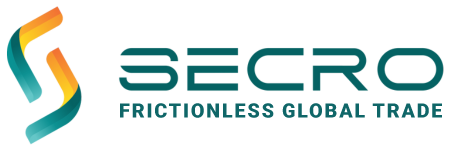In trade commodity finance, different approaches to lending are influenced significantly by the type of warehouse receipt provided. Here’s how these approaches differ and why tokenized eWarehouse receipts offer a substantial advantage:
- Scanned Copy of Warehouse Receipt:
- In this scenario, the borrower presents a scanned copy or PDF of the warehouse receipt. Since this lacks legal enforceability as collateral, it’s classified as unsecured.
- Impact: Lenders face higher risk and, in turn, apply a higher interest rate (up to 2% higher than secured). This unsecured method is frequently used due to logistical challenges in delivering physical documents on time, making it the default in most cases despite its higher cost.
- Paper Warehouse Receipt (with 5-Day Delay):
- Here, the borrower presents a physical, paper warehouse receipt as collateral, though it takes five days to deliver due to couriering. For those initial five days, the loan remains unsecured, becoming secured only after the document arrives.
- Impact: While partially secured, this setup is rare because it’s often impractical or even impossible to provide the lender with a physical document quickly. Lenders may agree to this partially secured structure but apply a blended interest rate, reflecting both secured and unsecured portions.
- Tokenized, Pledgeable eWarehouse Receipt:
- In this case, the borrower instantly submits a tokenized eWarehouse receipt, which is immediately enforceable as collateral and can be pledged at the point of funding transfer.
- Impact: This fully secured, digital approach reduces the lender’s risk, allowing for a lower interest rate and significant financing cost savings for the borrower. Tokenized eWarehouse receipts provide a groundbreaking solution to traditional barriers, creating both efficiency and cost-effectiveness in trade finance.
- Benefits to Banks: Tokenization also benefits lenders by enabling them to meet capital reserve requirements more effectively, as these digital receipts are readily enforceable. This allows banks to manage their capital more efficiently, promoting higher liquidity and lower costs.
Overall, the tokenized eWarehouse receipt offers the most convenient, reliable, and cost-effective method, addressing long-standing inefficiencies in securing trade finance and setting a new standard in the industry.
FAQ1 – Is a PDF warehouse receipt pledgeable under Swiss law?
Under Swiss law, a PDF or electronic copy of a warehouse receipt may not automatically qualify as pledgeable because Swiss law traditionally requires a physical, negotiable document for pledges on warehouse receipts. Swiss law generally distinguishes between electronic and physical documents, where possession of a physical document (typically a negotiable instrument like a paper warehouse receipt) allows for more straightforward collateralization, as it signifies control over the underlying goods.
For a warehouse receipt to be pledgeable:
- Negotiable Document: Swiss law often requires a warehouse receipt to be negotiable and transferable, which usually implies that it’s a physical document. If the warehouse receipt is in PDF form and is not negotiable, it might lack the legal characteristics required for pledging.
- Possession and Control: In Swiss law, transferring control over the goods is central to a pledge arrangement. A physical document enables control to be transferred in a legally clear way, while a PDF or digital document may not inherently provide this security.
- Exceptions and Innovations: Some jurisdictions have started recognizing electronic warehouse receipts and digital assets through legal reforms, but Switzerland has yet to universally adopt electronic pledging without the physical possession requirement, though there is momentum for digital asset legislation.
FAQ2 – Is a PDF Warehouse receipt secured under Swiss law?
A PDF document that is not pledgeable under Swiss law may still play a role in secured financing, though it lacks the same legal enforceability as a physical, negotiable document. While it cannot be pledged in the traditional sense, it may be used to support other forms of collateral arrangements, depending on the structure of the financing agreement and the mutual consent of the parties involved.
For instance, the PDF document could serve as evidence of ownership or entitlement, reinforcing the borrower’s claim to the underlying assets. However, without the enforceability of a pledge, lenders may face challenges in exercising rights over the assets in cases of default, making this approach less secure.
In practice, some lenders might accept a non-pledgeable PDF document if additional security is provided, such as a contractual right to access the physical goods or an alternative legal mechanism, but this arrangement often demands greater trust or additional collateral.
FAQ3 – Is Secro eWarehouse Receipt pledgeable and thus allowing secured financing?
Under Swiss law, Secro’s tokenization technology, in virtue of highly qualified legal opinion, is pledgeable. By securely converting physical assets or documents like warehouse receipts into digital tokens, Secro enables these assets to meet the control and possession requirements critical to Swiss pledge law. Tokenization provides a legally recognized means of transferring control over an asset digitally, aligning with Swiss legal standards for collateralization. This innovation allows electronic pledges to be enforceable, bridging the gap between traditional asset-backed securities and digital transformation in Swiss finance.
Comparative examples
Financing of $10M worth of aluminum ingots over a 20 days period
| Scenario | Secured Days | Unsecured Days | Secured Portion Interest Rate | Unsecured Portion Interest Rate | Interest Cost (Secured) | Interest Cost (Unsecured) | Total Interest Cost | % Interest Cost Saved vs. Scanned Copy |
| 1. Scanned Copy of Warehouse Receipt | 0 | 20 | N/A | 6% | $0 | $32,877 | $32,877 | 0% |
| 2. Paper Warehouse Receipt (5-Day Delay) | 15 | 5 | 4% | 6% | $16,438 | $8,219 | $24,657 | 25% |
| 3. Tokenized, Pledgeable Warehouse Receipt | 20 | 0 | 4% | N/A | $21,918 | $0 | $21,918 | 33% |

